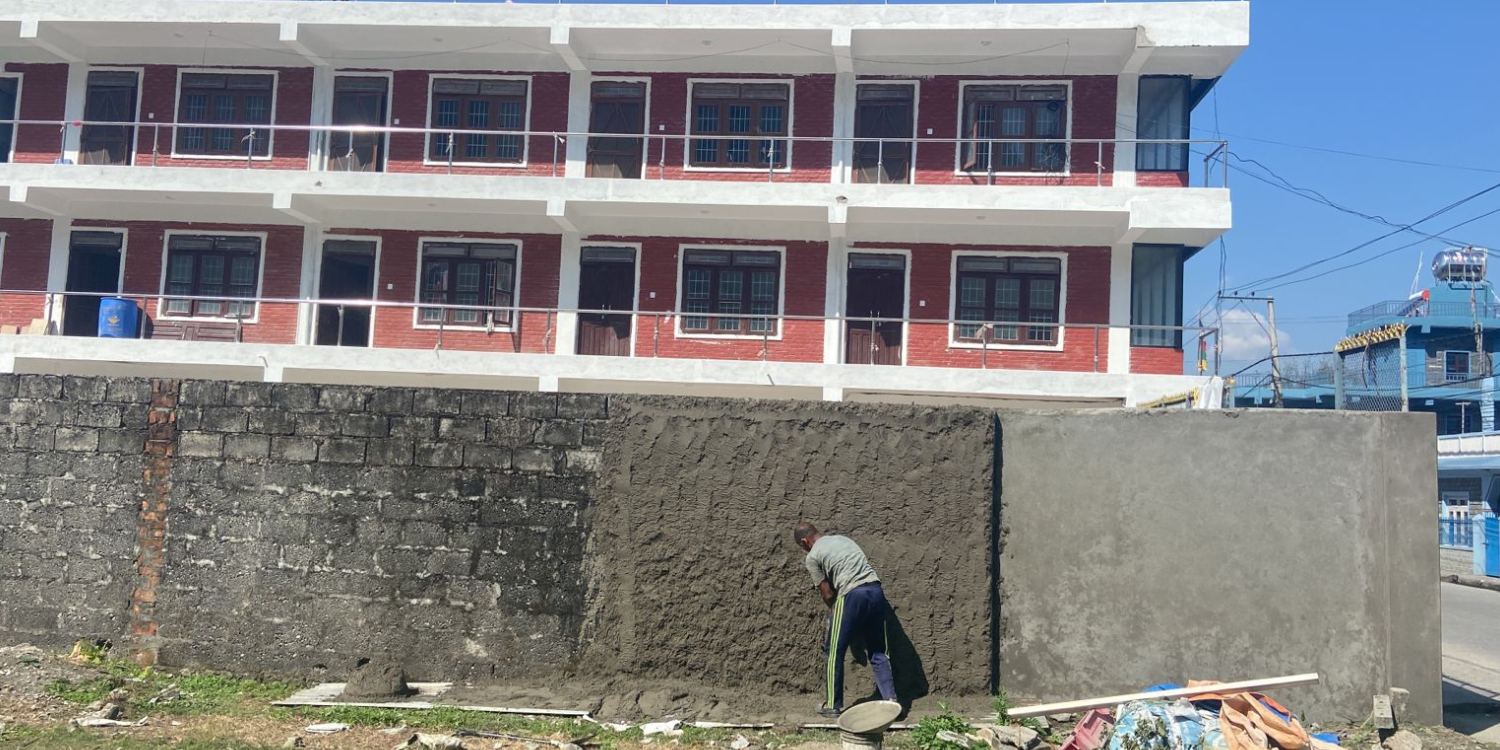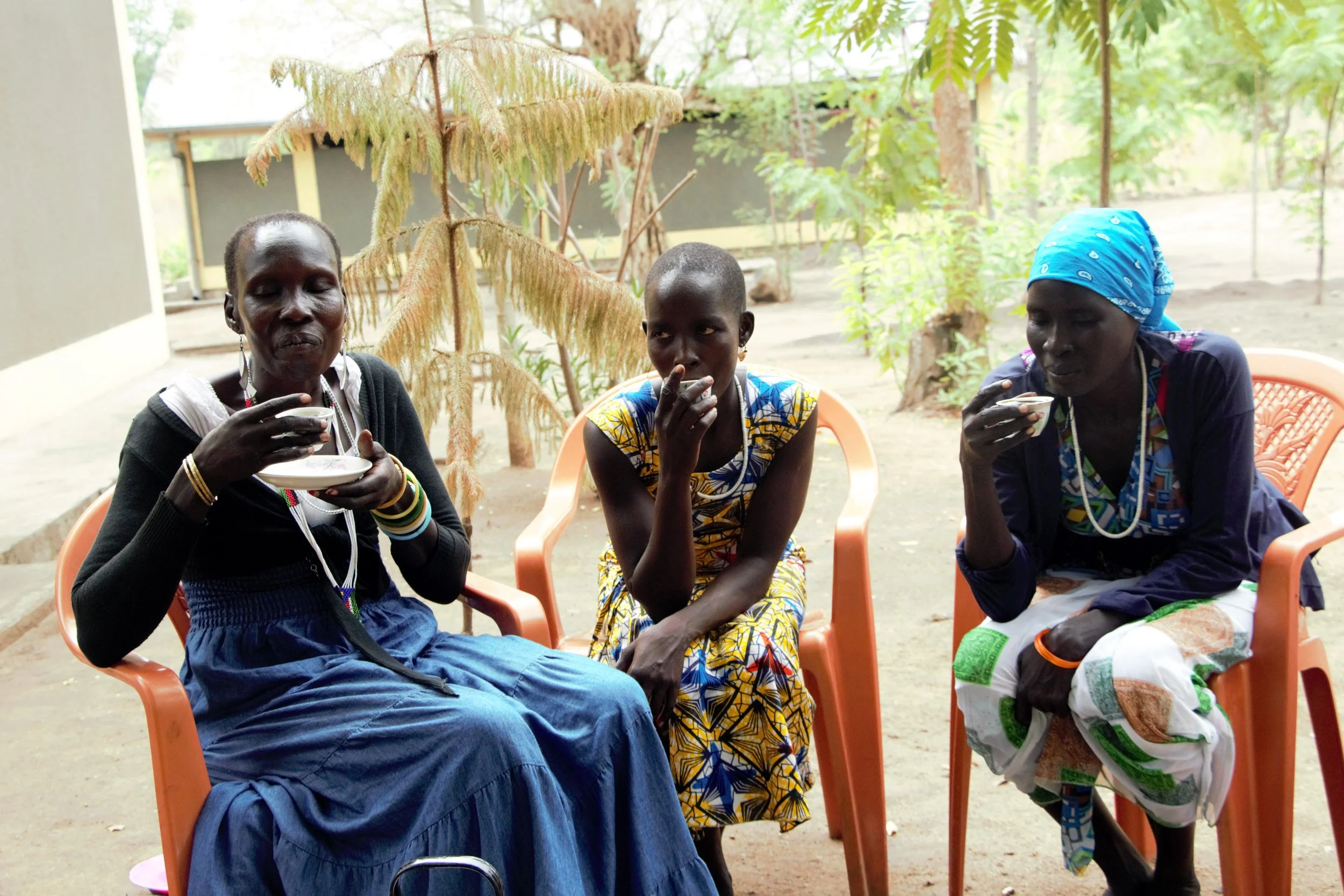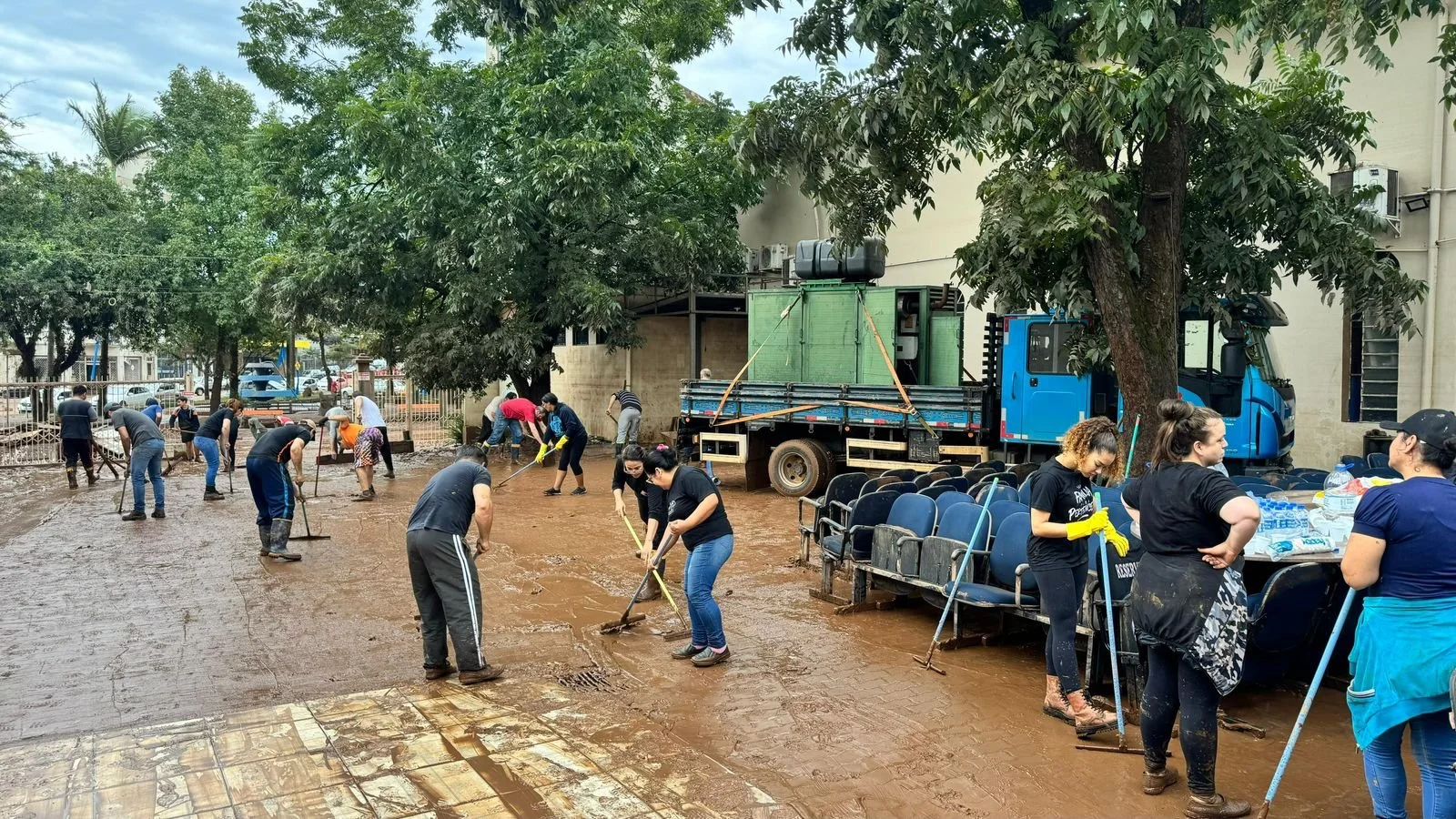A Time to Build: An Interview with Peter Vanacore about Mentoring Youth in Rwanda
There is a time for everything, and a season for every activity under heaven: a time to be born and a time to die, a time to plant and a time to uproot, a time to kill and a time to heal, a time to tear down and a time to build. - Ecclesiastes. 3:1-3 NIV
Guest Article by Luke Redington
Luke Redington is Assistant Professor of English at Gordon College in Wenham, MA. Luke attends Trinity North Shore Anglican Church in South Hamilton, MA., where he became interested in the Rwanda Mentoring project after hearing about it one Sunday.
Peter Vanacore is the President of the Christian Association of Youth Mentoring (CAYM). ARDF is partnering with CAYM, The Youth for Development and Human Rights Advancement (YDHRA), and the Anglican Diocese of Gahini in Rwanda for a mentorship program in Rwanda. You can find information on the project here!
Given the tumultuous times in which we live, this might seem like a terrible time to bring up more bad news. But I’m asking you to trust me. There is a problem in Rwanda you need to know about: the need to connect children and teenagers with adults who will serve as mentors. Until recently, everything I knew about Rwanda came via (Western) news outlets, so when I first heard about this need, I was waiting for the sentence to end with war, genocide, or AIDS. The thing that has kept me listening, though, is the trust I have in the person who told me. His name is Peter Vanacore, and he is an expert in youth mentoring. For the 43 years, Peter has been helping young people find the mentors they need. So, it’s really him I’m asking you to trust.
I recently interviewed Peter to learn more about his experience leading youth mentoring programs, and to learn the story of how Rwanda became so important to him. Immediately obvious to anyone who interacts with Peter is his joy for life and his resolve to work for the good of young people. Regarding Rwanda, his resolve takes on a sense of urgency. I asked him specifically about the gravity of the need, and I even confessed my difficulty in internalizing it. I remembered a phrase I once heard pastor J.R. Vassar say from the pulpit: “We have felt needs, and we have needs we need to feel.” Feeling like Vassar had helped me form my confession, I asked:
Luke: Why is this a need I need to feel? I mean, if we were talking about the need to respond to a disaster, like a flood or hurricane, I’d automatically want to respond.
Peter: This really is a disaster. When I was born in 1954, 3% of the children were born to unwed mothers. For the past 15 years, it’s around 40% in the United States. All of the research shows that the best chance at good outcomes for youth come from a stable home with a mom and dad. As a nation, we are facing a situation where a large percentage of our kids are in families where they do not have all of the resources both in terms of adult contact and adult oversight, love, and compassion—or even just the finances—to be able to thrive. We are going to be a nation that in terms of human resources is leaving the potential of youth behind.
That is the same in Africa. It’s more intense there because of the lack of resources. Many youth lost parents during the HIV epidemic. There also aren’t the government programs to provide resources to help kids become mature and whole.
This is a disaster. It’s a disaster that takes a couple decades to play out. (Vanacore)
Notice that Peter’s response does not frame the need for mentoring youth in Africa as a distant issue to be watched and pondered from a safe distance. Rather, Peter sees youth in Africa as suffering in the same way as youth in the United States, but with fewer civic safety nets beneath them.
And, the solution is the same in both cultural contexts. For the last few years, The Christian Association of Youth Mentoring—the organization Peter directs—has been coordinating youth mentoring programs in Rwanda. I asked him how CAYM’s efforts in Rwanda differ from those in the United States. His answer was as concise as it was encouraging: “They’re the same.” Sensing my surprise, Peter elaborated:
Peter: We are helping Rwandans design a mentoring ministry that fits their culture. This is still similar to what we do domestically, because in the United States, every mentoring program we help start looks different. None of them advertise affiliation with CAYM. It’s all about their culture.
In each case, we use evidence-based best practices in a Biblical framework. Mentoring researchers, one of whom is Michael Karcher—who is on our board of directors—have identified best practices for ensuring mentoring programs are safe, effective, and sustainable.
In all times and places, CAYM loves to work quietly and collaboratively to produce programs that flourish where they are planted. No wonder its success crosses borders. But Peter’s emphasis on a Biblical framework made me think about the term “discipleship,” a I term I noticed he did not use. So, I asked:
Luke: How are mentoring and discipleship similar or different?
Peter: Mentoring doesn’t always involve discipleship, but all discipleship involves mentoring. Most of the kids who are mentored don’t start off thinking they want a mentor because they don’t think adults care. The kids we work with have been disappointed by adults. There’s a real lack of trust because of abuse or abandonment. So, when the concept of mentorship comes up, the kids find it new. They have to have to be convinced of its value.
This is especially true of older kids. Younger kids sometimes just want a caring, safe relationship, but older kids need to see that goals will be accomplished through mentorship. So whether they are looking for a relationship or a goal, it ends up with the development of trust. The key question we focus on with our mentors is how they can establish trust. Once that trust is established, we get to invest more into their lives and eventually earn the opportunity to share Jesus. Not all kids respond to that, but some do. In one parish in Rwanda, 17 kids got baptized who were being mentored. As trust builds, the opportunity comes to share the good news.
Trust, it would seem, is the key ingredient in helping people of all ages cross the border from felt needs into the realm of needs we need to feel. The theme of trust brought me to my next question:
Luke: When money is given to the mentoring program in Rwanda, where does it go?
Peter: For the training and equipping of churches so that they can run mentoring programs that are safe, effective, and sustainable. Our staff at CAYM and our partners in Africa work both on site and online to train equip and supervise mentors as they develop these programs. Then, we continue to work with them to help them sustain it.
Building quality mentoring programs takes time because commitment to the three cornerstones of CAYM’s approach—safety, effectiveness, and sustainability—is labor intensive. But it’s worth it. Michael Karcher, whom Peter mentioned earlier, has published extensive research about the importance of taking time to build mentorship programs carefully and in alignment with these cornerstone values. An article Michael Karcher published with fellow researcher Michael Nakkula demonstrates the close connections between these values. Building on previous research about the different styles of mentoring, they conclude that style is inseparable from substance. Whether emphasizing the ability of mentoring to help youth achieve goals or emphasizing relationships, a skilled mentor will attend to the ways that interactions, over time, allow this distinction to blend (17–18). Building trust takes time.
And there’s more good news: When mentors take the time to find out what makes young people feel safe and connected in the context of their home culture, then it is possible to design effective mentoring practices across ethnic differences (Karcher and Sass 284).
What do effective mentoring programs accomplish? They help young people address the effects of family strife, improve classroom behavior, increase academic performance, development job skills, and help young people find a path to healthy adulthood (Karcher and Nakkula 24–27). By giving to well-run youth mentoring programs, you have the chance to make an impact while the time is right.
For decades, Peter has been doing exactly that by incorporating the wise counsel of experts like Michael Karcher to craft mentoring programs that hum along quietly in the background of communities, happy to be the just-out-of-view heroes helping young people flourish. Consequently, CAYM has become well known among those who know about youth mentoring. Other organizations partner with them, and the results benefit all stakeholders.
A recent partnership has flourished beyond what anyone could ask or imagine. A few years ago, when Peter heard about a Rwandan minister named Andrew Mahame, he knew he had found a hero. So, CAYM took its usual next step: It began careful, thoughtful training that equipped Andrew to implement research-based youth mentoring practices in ways that fit his cultural context. Andrew flourished. It was clear he was destined to become a mentor of mentors. Andrew also dreamed of building something big: He wanted to expand youth mentoring throughout Africa. His dream began to materialize. Then it began to grow dramatically. Peter explains:
Peter: In 2023, the CAYM team went to Rwanda to train Andrew. What happened is that Christians from other countries and programs decided to come: The Democratic Republic of the Congo, Uganda, and Burundi. The leaders came in to learn more, which we did not expect.
Then, another overseas trip put this story into overdrive. That same year, the Anglican Church in North America hosted a leadership conference in Massachusetts. Bishops from East Africa made the long trek to attend it. Peter had been asked to speak at the conference, and as you might imagine, he spoke compellingly about the importance of youth mentoring. His message took hold with the African bishops. Peter describes the effect:
Peter: That changed everything. God opened the hearts of bishops. The bishops have a passion for youth and for discipleship and evangelism. And, in Africa, the bishops are respected so much that people follow through. It’s a different atmosphere. I’ve never seen anything like it.
So, the bishops returned to East Africa and began making youth mentoring a major priority within their dioceses. Their message took hold. Andrew’s dream began to grow so quickly it needed support.
Andrew and the bishops found support in the form of a grant from the Anglican Relief and Development Fund (ARDF). As a Global Mission Partner within the Anglican Church in North America, ARDF reaches the world with acts of compassion. Their mission statement puts is succinctly:
ARDF connects Anglican churches with resources as they meet the needs of their communities, expanding the Kingdom of Christ through tangible acts of compassion in their contexts. We are honored to be the silent partner in the background, supporting the local church to encourage families and communities with practical help and solid solutions through a living Gospel that feeds body, soul, and spirit. (Anglican Relief and Development Fund)
ARDF’s love of working behind the scenes harmonizes perfectly with CAYM’s approach, so a partnership between them was ready to quietly make a huge difference. Soon, CAYM was able to use existing social networks and infrastructure in local Anglican churches for the expansion of mentoring programs in Rwanda and beyond. This growth stemmed from another key similarity: Both organizations take time to ensure best practices get translated effectively into a given culture. For CAYM, this commitment means taking time to train mentors. For ARDF development grants, this commitment plays out in the following practical way:
The ARDF development model is one-of-a-kind. ARDF is perfectly situated for maximum impact with our donors' money, leveraging the power of relationships to identify and invest in projects that have the highest probability of success. Through our connections with local churches on the ground, we support local leaders to carry out the work of each community development project. This results in efficient and effective use of resources to truly carry out the change that we all want to see in the world. (Anglican Relief and Development Fund)
The great work CAYM had begun in Rwanda fit all these criteria, so they teamed up to get this project rolling. Due to its success, demand already exceeds supply. The initial grant CAYM received from ARDF was helpful. But, as Peter explains:
Peter: We need more resources. As it is, we turn down mentoring programs that we don’t think are in the place where they could start and continue in a way that would ensure that the mentoring is safe, effective, and sustainable. Mentoring done poorly can cause more harm than good.
Thinking of what might be possible with more resources, I asked Peter about the future:
Luke: What if the Lord came to you and said, “Peter, I want you to dare to dream something for next year”? What would it be?
Peter: My dream for next year would be that in Africa as well as in the United States, we would have regional directors who were able to work with churches. Together, they would establish mentoring that can reach kids and their families in places where they are currently not being reached. That’s my dream. Next year, I would like to see four or five African partners in different regions of Africa.
I would like to see Andrew Mahame be made a regional director. We have already begun to expand beyond Rwanda; we are training leaders in 12 African countries, including the Democratic Republic of Congo. We have a team headed for Kenya and Tanzania next month, and I will be in Uganda and Rwanda later this year. After that, I would like to see us expand to West Africa.
It is time to build.







